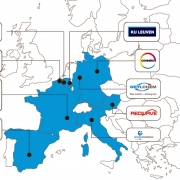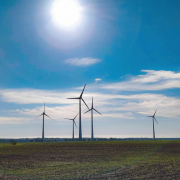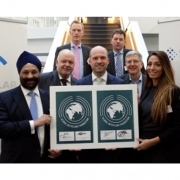Circular Economy: Paramount to Achieve the European Commission’s 2040 Climate Target
The European Commission unveiled a pivotal Communication outlining the 2040 climate target of 90% net GHG emissions reduction compared to 1990. This wants to put the EU on a firm path to climate neutrality by 2050. To deliver such an emission reduction, the analysis shows that the level of remaining EU GHG emissions in 2040 should be less than 850 MtCO2-eq and carbon removals (from the atmosphere through land-based and industrial carbon removals) should reach up to 400 MtCO2.
Among others, the Communication emphasises the significance of a renewed agenda for the circular economy, a sentiment welcomed by FEAD, the European Waste Management Association. In fact, the Impact Assessment shows that “up until 2040, the circular economy will become increasingly important to achieve both climate ambition and a new prosperity model for Europe. It is key to wed action against climate change and excessive resources use with new economic opportunities and greater EU autonomy. This makes implementation of the Circular Economy Action Plan (CEAP) a must and calls for a renewed partnership with industry for a circular economy agenda going forward”.
FEAD underlines the clear benefits of prioritising the circular economy and is committed to accelerating the uptake of secondary raw materials into the economy. Supporting the CEAP’s ambition to double its Circular Material Use Rate (CMUR) in this decade, FEAD developed in July 2023 its vision for the future of the industry. FEAD’s vision is to shift Europe’s overall material use towards recycled materials through industrial excellence in waste management. To do this, the target is to achieve a 75% target for the recycling of all waste (not only municipal) in the EU by 2035, which will indeed require Circular Economy Value Chain Partnerships that connect the waste management sector with industrial production.
This ambitious target also aligns with the EU’s broader goals of reducing dependence on imports of critical raw materials and mitigating the environmental impact associated with natural resource extraction and consumption. Circularity boosts the EU’s security and open strategic autonomy. Likewise, the development of CO2 value-chains through carbon capture and use (CCU), nature-friendly biobased materials, mechanical and chemical recycling can all boost the development of non-fossil feedstock to substitute fossil fuels in carbon-based products. However, FEAD emphasises the importance of
- prioritising mechanical recycling, that has higher yield and low energy consumption
- avoiding a diversion of waste streams that could be mechanically recycled into chemical recycling, and
- not equating biobased plastic feedstock to recycled materials.
To reach climate neutrality by 2050, carbon capture, utilisation and storage (CCUS) and carbon recycling solutions are needed. FEAD strongly supports the utilisation and recycling of carbon to contribute to circular economy models. To develop this, clear and harmonised EU rules are needed to provide robust incentives. Moreover, industrial carbon removals do not replace, but complement, natural carbon removals, which remain essential to reach the climate target and to which the waste management sector also makes important contributions to, through composting activities.
In conclusion, FEAD welcomes the European Commission’s Communication on the 2040 climate target and acknowledges the concerted effort required to achieve these ambitious goals. The association stands ready to work alongside EU institutions to pave the way towards a sustainable, just, and prosperous society.
Claudia Mensi, FEAD President said: “We are pleased to see the need for a circular economy highlighted in the European Commission’s Communication as we believe it is the key to achieve our goals. That is why FEAD’s vision is to drive Europe towards a 75% recycling target of all waste in the EU by 2035, facilitated by industrial excellence in waste management.”
Source: FEAD (Brussels, February 7, 2024)







